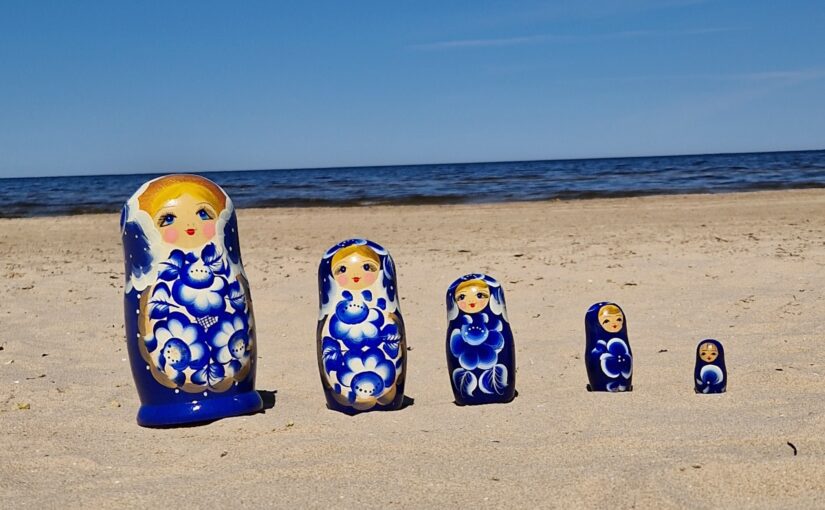Field of study in Wageningen: International Land and Water Management
Study period exchange: 16/02/2023 – 28/06/2023
Country (exchange): Latvia
City (exchange): Riga
University (exchange): University of Latvia
Faculty (exchange): Geology
2. Motivation for exchange
Why did you choose to go on study exchange?
The reason I chose BIL as my bachelor is because it combines social science and natural science and it fits my interests and abilities. I actually switched to this programme because it includes more social science, rather than the more physics-related courses I had on my previous bachelor Soil, Water & Atmosphere. It is clear now that I wanted to study in a more social science-related field. When I was granted the opportunity to go on an exchange and I must excitedly say that my first choice university was the University of Latvia (UL). The reasons for that were as follows: Interested in the region. I have always been fascinated by the Soviet era and I read, watch and search a lot about the USSR. This passion started already when I was little. Studying at UL gave me the opportunity to see a former soviet country in a post-soviet world. What is more is that I had the opportunity to learn the basics of the Russian language, making it both easier to learn Slavic languages and to travel there in the future. Other courses that really grasped my attention were Ethnic Communities and Political Anthropology. I also wrote an essay about water competition in Crimea ( water flow in irrigation channels is cut-off to apply pressure to Russia that annexed the peninsula) and Southern Limburg comparing the different situations. Finally, studying abroad developed my responsibility and independence. Even though I followed courses in the environmental and climate studies fields, some of the courses I followed during my exchange were in a different kind of field than the courses in my major. This was exactly what I wanted. I wanted to broaden my knowledge about land and water problems with politics and social science.
What is the reason you chose for this country/university?
In my previous answer I already mentioned some reasons. Other than those, I wanted to go to a region in Europe I haven’t been to before. And now I can proudly say that I developed a connection to this region, as well as for Scandinavia, that I will carry in my heart.
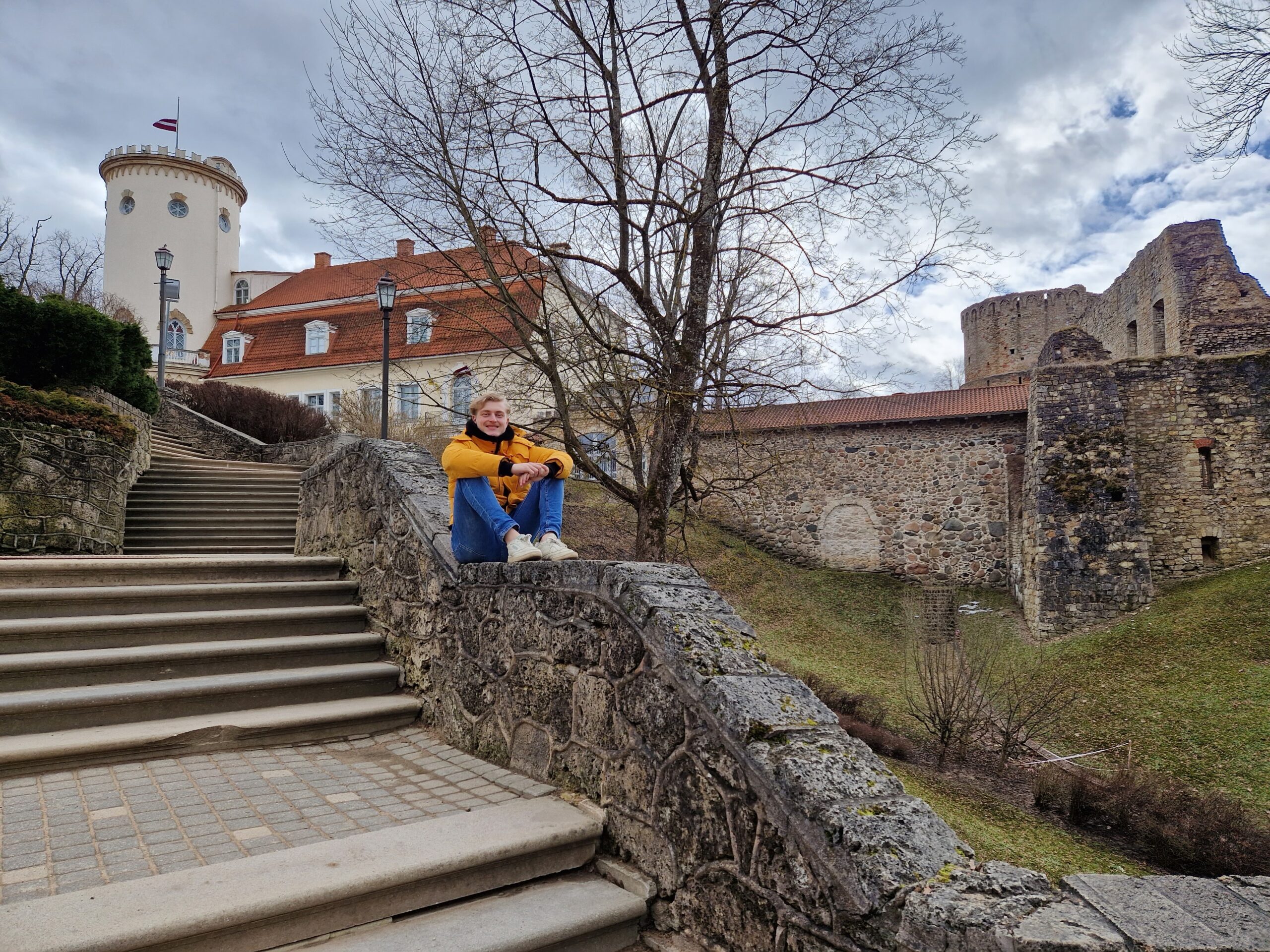
3. Accessibility to reach destination
Do you have any tips to reach your exchange destination?
Upon arrival in Riga Airport, avoid taking a taxi from people that offer you those. Instead, make use of the popular taxi service Bolt that is widely used in the Baltics. It is fairly cheap. Additionally you can make use of the bus that leaves from the airport and profit from of the low public transportation costs in the Baltics.
4. University and studying
Could you provide some general information about the followed courses?
 How is the study formalized?
How is the study formalized?
The courses all differed on these aspects. Since Ethnic Communities and Political Anthropology were anthropological courses they require you to read 2 articles per week per course, which takes 4 hours of good intensive reading per article. Other than these home tasks, the classroom sessions were a mixture of group discussions and presentations by both the teacher and the students, creating an interactive environment that helped understanding the concepts we were taught. The environmental courses were quite the opposite, they required us to listen to the teacher’s presentations for a couple of hours per session, accompanied with a halfway break. I told him (the teacher was the same for the two courses) that the interaction was missing during class. The homework tasks were a mixture of reading books and watching movies/ writing essays. Feedback was not given that much when nothing was being asked by the students. Even though the course material was interesting, I was not as pleased by these courses as compared to the anthropology courses.
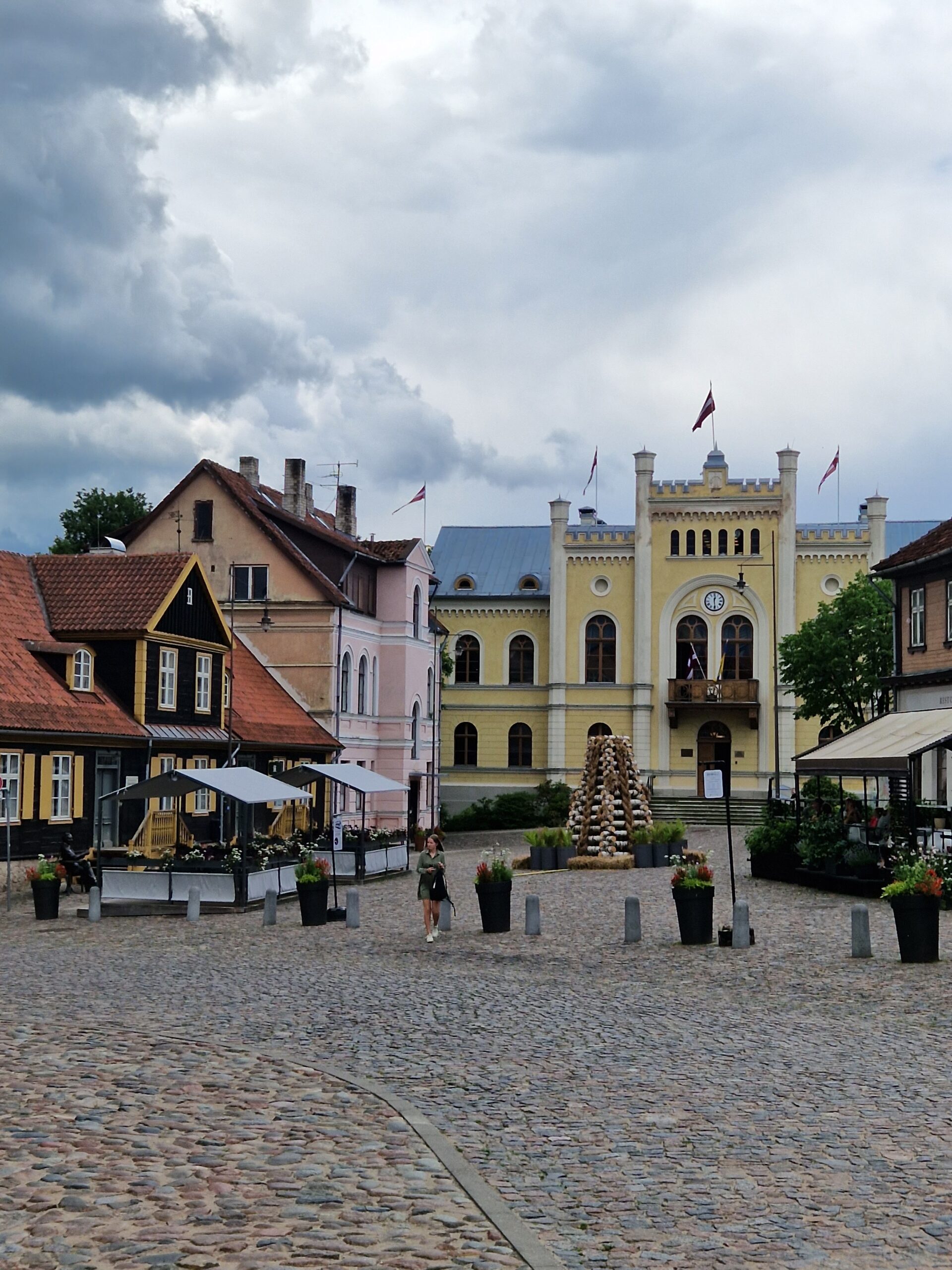
What is the culture of the university?
Most of the courses I had mainly consisted of other Erasmus students. The teachers from these courses were a bit more distant to the students, it is the same lecturer I told to be more interactive. The remaining courses had some locals in them as well. I did in the end befriend with a few but I didn’t have the urge to meet more people than I already had done with the internationals I befriended outside of University. This didn’t have that much to deal with the friendliness of local Latvians. The Latvian anthropology students seemed more approachable to me than most local Latvians I’ve met outside University. The distance between teacher and student was not any other here compared to the Wageningen teaching environment.
What does the university offer the student additionally?
There are sport facilities, there were events created as well, reductions o prices with student card, the mobility department grants students cheap subscriptions to public transport, also excursions and workshops were offered to students.
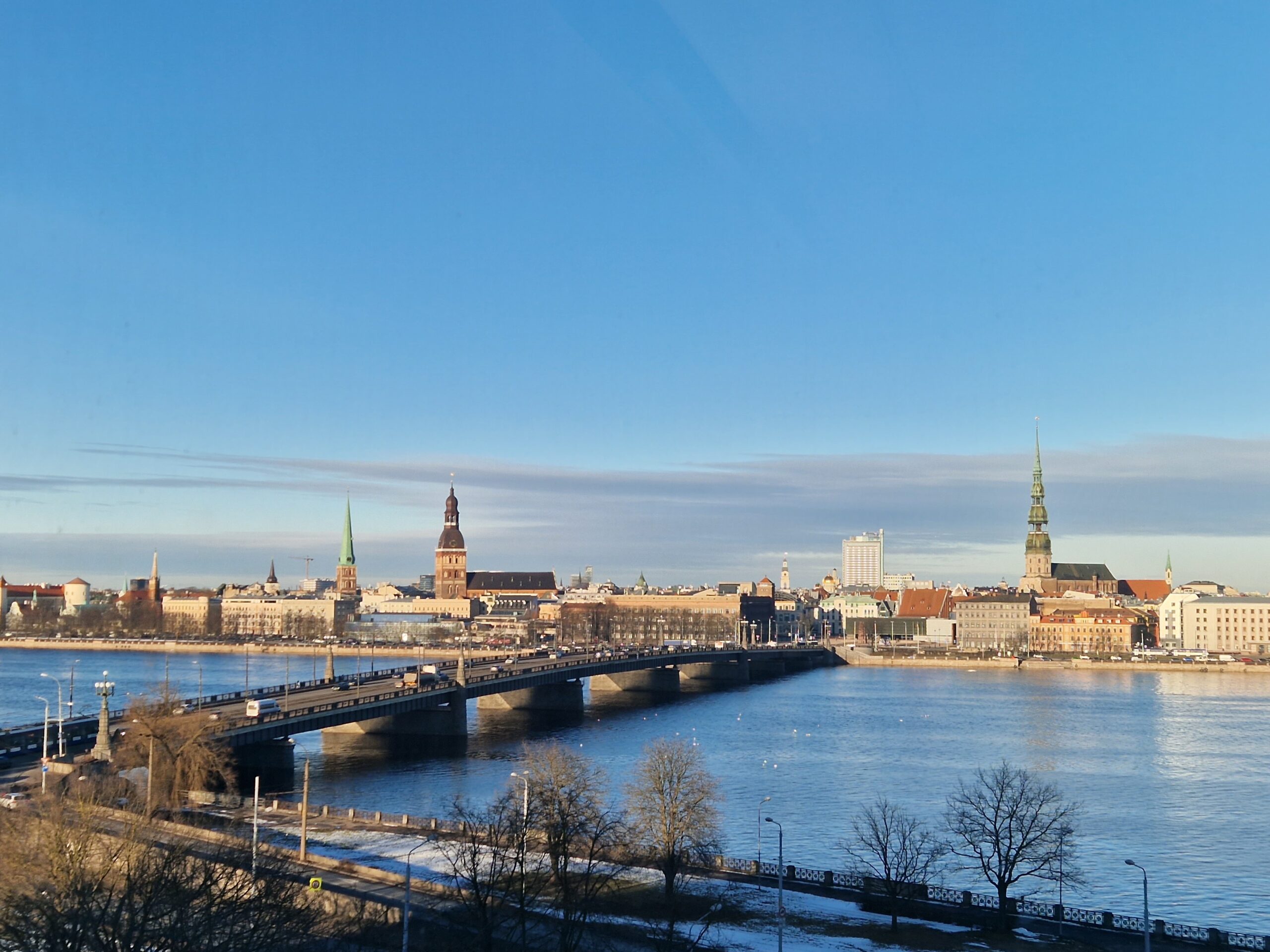
5. Housing-travelling-living
What are the possibilities for housing?
Housing was possible among agencies, the university and private rents through social media.
Could you give a general price indication of the place of residence compared to living in Wageningen?
Rents for housing ranged from 250-500 euro per month for flatshares. Supermarket prices are a bit cheaper than in NL. Overall it is less expensive in Latvia to reside than in NL.
Could you give some information about public transport infrastructure?
It was way cheaper compared to Netherlands. A monthly subscription of travel by bus, tram and train in Riga costs 15eu. Public transport outside Riga is doable as well. 1.5 h rides by train are around 2 or 3 euro. By bus it is around the same.

6. Free time
What are must-sees in the area?
Old Town, Mezaparks, Jugenstil area, The city parks, The broad range of Museums, like the Occupation Museum or Museum of Art, The National Library, Beach from Jurmala, View on top of the Academy of Sciences. Outside of Riga: Kemeri or Gaulja National Park, The medieval cities of Cesis and Kuldiga and try to rural Latvia to see more authentic livelihoods. I either went by foot, bolt step, tram or train/bus , depending on the destination, most of the Riga highlight are doable by walk since they are centered around the centre.
What does not appear in the travel guide, but is worth a visit?
Vecaki beach, The soviet flat neighbourhoods of Plavnieki and Purvciems, The beautiful forests of Mezciems and small lakes of Jugla.
Do you have general tips and tricks about leisure time?
Opportunities enough to go out, you don’t have to worry. Try to talk to locals to get away from the touristy old town light life experiences. There are event creators for parties and raves all across the city and surroundings. Also just try out something different every time to discover as much as possible.
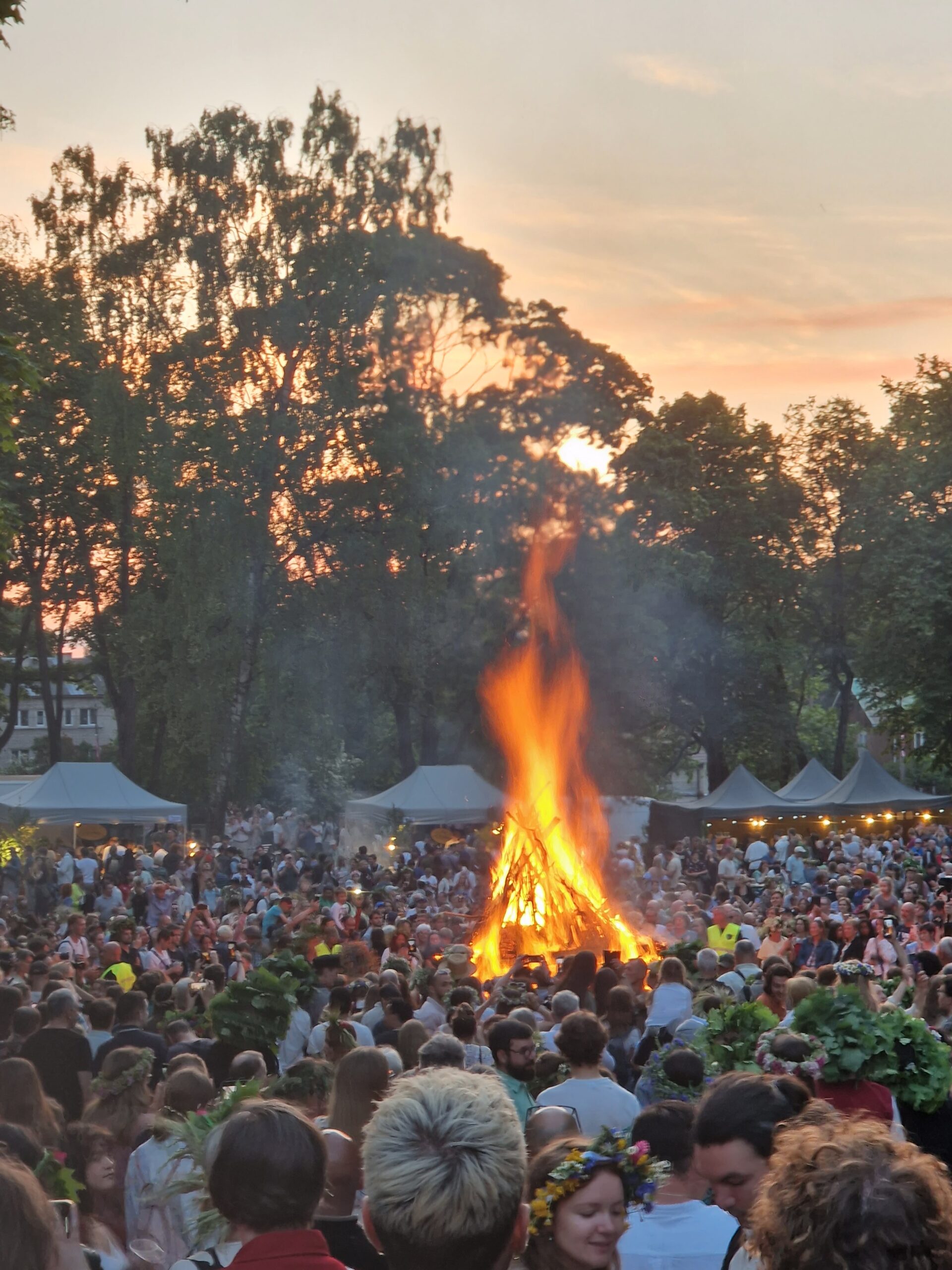
7. Challenges & best moment abroad
What was a challenge you have experienced?
Take a credit card with you or buy a Revolut card to make life easier. I haven’t faced any challenges.
What was your best memory abroad?
The snowmobiling in complete nature vastness in Northern Finland during the Lapland trip.
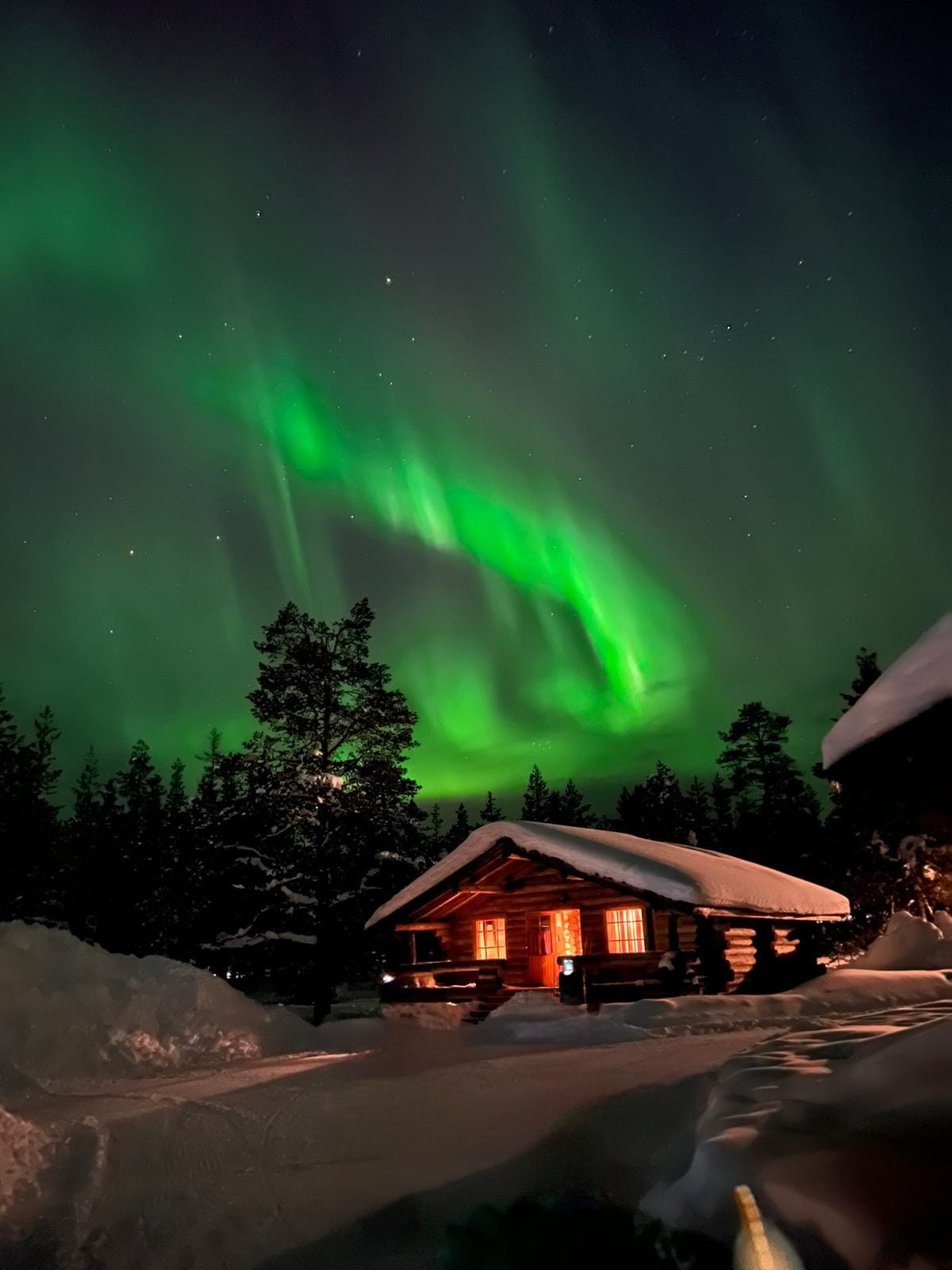
8. Contact Details
Would you like to ask Leandro more questions about his exchange?
Send him a mail: leandro.devries@wur.nl.

